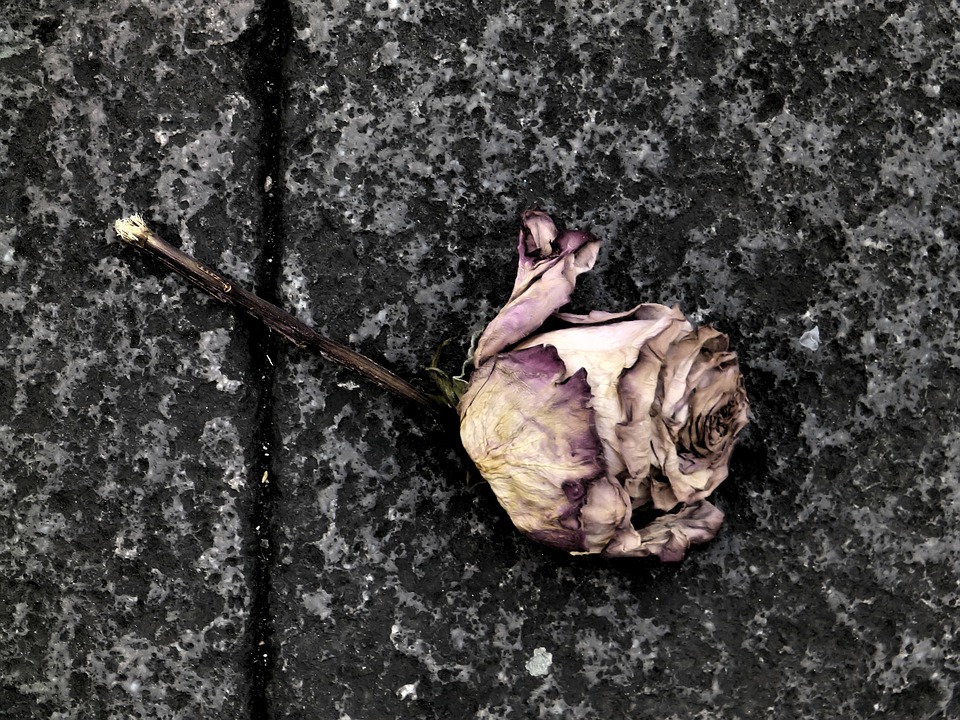[To save and read later, click here]
You might be wondering why I chose to blog about death – well, because it is an area of life which intrigues me, scares me and saddens me. It is a topic which we do not often talk about unless it affects us directly, and even then, it can be difficult to know what to say or how to behave around this topic – I do not believe that it is morbid to talk about it or connect with our feelings, fears and worries about it. In fact, I think that it is quite healthy to acknowledge and process that this life will end, so that we can go on to live fulfilling lives.
I am not going to talk in clichés about how the deep awareness of the existential truth of death, can jump start us into connecting with our own lives, or how it can reflect the process of a new beginning: although there might be some truth to these clichés; my questions are around what our relationship with death is. As society has changed over the years, the meaning of life has shifted and changed, so it is not surprising that the meaning of the end of life will also change.
Within the western world, I see us being quite silent and detached from death unless it affects us directly. There is a pre-occupation within the media with how we can stay young, live for longer whilst looking vibrant and unwrinkled. Time and time again, I see films or read books about being immortal or the quest to obtain eternal life. For me, this shows our preoccupation with wanting to live forever and to find a way to cheat the inevitable.
Questions about death
I have lots of questions about death. What will it feel like? Will it hurt? If I am conscious, will I feel at ease with it? What happens after death? Will I be able to see myself dead? Do people who have faith in a God or higher power find it easier to come to terms with death?
I am sure I am not alone in thinking these kinds of questions. And I am sure, there are a million one other questions about death which most of us find difficult to verbalise. I have noticed that over the last few years, a number of death café’s have been popping up. They say on their website “At a Death Cafe people drink tea, eat cake and discuss death. Our aim is to increase awareness of death to help people make the most of their (finite) lives”. I think it is really healthy and supportive to have an opportunity to talk about the questions we have and share these with others.
Similarly, death doulas are becoming more common amongst us to support and assist people at their end of life. They say on their website Living Dying well “Doulas are trained in supporting people at the beginning (birth doulas) and end of life. ‘End of Life Doulas’ walk alongside the individual, their family and their community as an informed companion. They go on to say:
“Doulas are not a new idea. In indigenous cultures around the globe, and for thousands of years, people have stayed in their homes to die, looked after by their family and local community. In the western world, this concept has been undermined by a gradual shift towards hospitalisation, taking responsibility away from the person and those around them. However, it’s possible to make death an intimate, spiritual and peaceful experience for everyone involved, whether medical support is required or not”.
With isolation being a prevalent issue amongst our society at large, having support around death issues feels important to support people in a western society which is less community based than other cultures.
And as we come towards the end of this blog…
One of the things that we can be certain about in this life, is death- everything comes to an end, and everything dies. Depending on which culture or religion one belongs to, or is brought up in, death means different things. There are also different rituals associated with death, different ceremonies to mark the deceased, different rites of passage to honour the deceased and their soul, spirit or life. For example, Tibet has sky burials, whilst Ghana has fantasy coffins. What is common to all cultures, is the special marking of this rite of passage.
Death is most certainly one of the most life changing times of a person’s life, as we lose people to a realm, a dimension, we actually know very little about, despite what religion or spiritual practises teach us. One thing is for sure, without death, there is no life, and without life, there is no death – this cycle is universal, and exists on a micro-level, and on a macro-level, from a plant dying, to a star or galaxy dying.
As my mother used to say, no one really knows what death has in store for us, because no one has died, and come back to tell the tale.
Other useful blogs:
Dreams: are they the royal road to your unconscious?
Resources
Death Café https://deathcafe.com/c/United_Kingdom/
End of Life Doula UK – Doing Death Differently https://eol-doula.uk/
If you would like counselling or support for any of the issues mentioned in this blog, you can contact me for further information.

